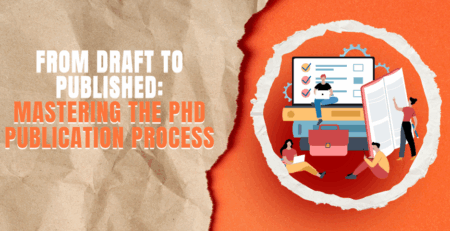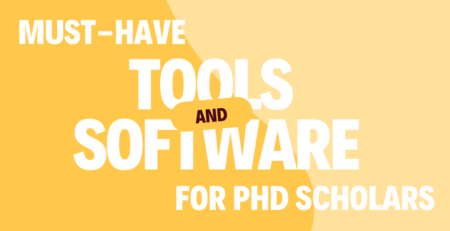29May

Embarking on a PhD journey is a bold and admirable decision. Whether you’re passionate about groundbreaking research, aiming for a career in academia, or driven by a thirst for knowledge, starting a PhD is a major life commitment. But truth be told, it’s not just about the pursuit of knowledge — it’s about managing uncertainty, overcoming self-doubt, and staying afloat through years of intense intellectual labor. Before Starting My PhD, I had no idea how much personal resilience it would require. As someone who’s been through the process, there are countless things I wish I had known Before Starting My PhD. This blog post isn’t just for prospective PhD students — it’s for anyone seeking a realistic glimpse into the world of doctoral research. Here’s what I wish someone had told me before I stepped into the world of PhD studies.

One of the biggest misconceptions is that your research topic is the most important decision you’ll make. In reality, your PhD supervisor can make or break your doctoral experience. A supportive, communicative, and engaged advisor can guide you through tough times, help you refine your research focus, and encourage your professional development. On the other hand, a disengaged or critical advisor can lead to burnout and frustration.
Tip: When applying, research your potential supervisor’s mentoring style, track record, and publications. Talk to their current and former students if possible.
We often begin our PhDs with high energy and enthusiasm. But reality soon sets in: this is a long, demanding journey. It’s easy to burn out if you try to maintain a constant high pace.
Lesson: Treat your PhD like long-distance running. Develop a sustainable routine, build in breaks, and pace yourself. Success in a PhD is about consistency, not speed.
At some point (or several points), you’ll feel like you don’t belong — that everyone else is smarter or more competent. This feeling is common and doesn’t reflect your actual abilities.
Starting a PhD doesn’t mean you’re already an expert — it’s how you become one. The early stages can be humbling. You’ll come across dense literature, unfamiliar methodologies, and complex data. You’re supposed to ask questions and learn.
Pro Tip: Don’t let fear of looking “inexperienced” stop you from asking questions. The more you ask, the more you grow.
You’ll often be juggling multiple tasks: coursework, research, teaching, writing papers, and maybe even conference presentations. Without structure, it’s easy to drift and fall behind.
Suggestion: Use tools like Notion, Trello, or Google Calendar to plan your weeks. Set realistic daily and weekly goals. Track your progress regularly.
The academic world often glorifies perfection. But during a PhD, done is better than perfect. Many students delay writing or submitting work because they feel it’s not “good enough.”
Reality Check: Research is messy. Your first draft doesn’t need to be perfect — it just needs to exist. You can improve it later.
PhD programs can be isolating, especially when you’re buried in literature reviews or running experiments alone. The long hours, high expectations, and uncertainty can take a toll on your mental health.
Advice: Find your support system — be it friends, family, or peer groups. Many universities offer free counseling services. Don’t hesitate to ask for help.
You might think your research speaks for itself, but academic success is also about who you know. Building relationships within and beyond your department is vital for collaboration, publishing, and job opportunities.
Opportunities: Attend conferences (even virtually), join research groups, and connect on platforms like ResearchGate and LinkedIn.
It’s normal for your research focus to shift as you dive deeper into your field. What you propose in your first year might look very different from your final dissertation.
Lesson: Flexibility is a strength, not a weakness. Embrace the evolution of your work.
There’s increasing pressure to publish during your PhD. While having publications helps your academic career, the obsession with metrics can sometimes overshadow the learning process.
Balanced Approach: Focus on conducting solid research and improving your writing. The papers will come.
It’s easy to let your PhD consume your entire life. But remember — you are more than your academic work. Hobbies, friendships, and time away from your desk are vital to your well-being.
Self-care Tips: Schedule regular downtime. Stay physically active. Celebrate non-academic milestones, too.
A PhD doesn’t guarantee a tenure-track position. In fact, many graduates transition into industry, government, or entrepreneurship.
Advice: Start building transferable skills early — writing, project management, communication, and data analysis are highly valued beyond academia.
Starting a PhD is a courageous step. It’s a journey filled with intellectual excitement, challenges, breakthroughs, and self-discovery. While no one can fully prepare you for the emotional and academic rollercoaster, being informed can make the ride smoother. Before Starting My PhD, I wish I had known that struggles are a natural part of the process. If you’re considering or just beginning your PhD, remember this: it’s okay to struggle. It’s okay to change direction. And it’s okay to ask for support. Before Starting My PhD, I underestimated how important resilience and community would be. Your value isn’t measured only by your research output — but by your growth, resilience, and contributions along the way.
Kenfra Research understands the challenges faced by PhD scholars and offers tailored solutions to support your academic goals. From topic selection to advanced plagiarism checking.

Publishing a research paper is one of the most rewarding milestones in a PhD journey. However, navigating the PhD... read more

Starting a PhD journey can be both exciting and overwhelming. As an early PhD student, mastering Effective Research Strategies... read more

As businesses and individuals continue to embrace digital transformation, cloud-based software solutions in 2024 have become indispensable. Offering unparalleled... read more

In today’s digital age, conducting qualitative research is no longer limited to manual coding and colored sticky notes. Researchers now... read more
Engg teachers demand educational leave without bond conditions: Engineering teachers are advocating for educational leave without being subjected to bond conditions.... read more

A PhD journey is filled with extensive research, data analysis, and academic writing. Having the right Tools and Software... read more

Writing an abstract is a very important part of academic writing. If you are a student, researcher, or scholar, you’ll... read more

In any research study or data-driven project, handling missing data in your dataset is a crucial step that can significantly... read more
WhatsApp us
Leave a Reply